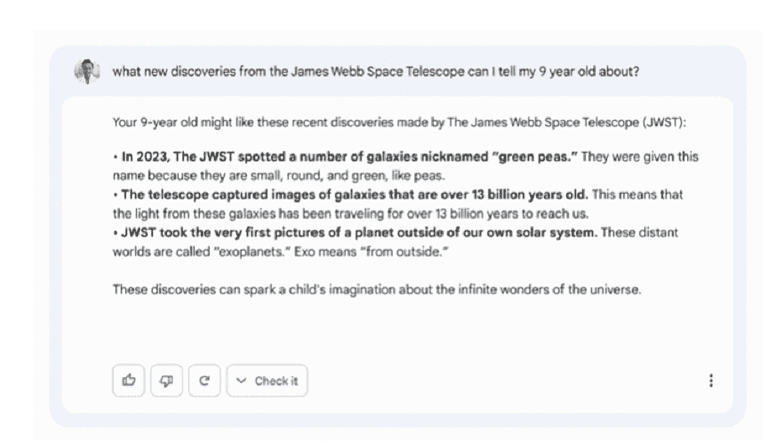The move marks a shift from its previous stance of downgrading such content. The company has updated its guidelines, recognizing the importance of automation and AI in creating useful content.
Google will assess four key qualities, E-E-A-T (expertise, experience, authoritativeness, and trustworthiness), to rank content and has stated that AI-generated content intended to manipulate search rankings is considered spam.
Google announced Bard recently. The idea is that it will answer input queries by summarizing web pages, reducing the need for people to click through different websites to find the information they need. In addition, Microsoft has also jumped on the AI-powered search bandwagon and has integrated a powerful language model into its search engine, Bing. New search and text generation capabilities are coming to Microsoft’s Edge web browser.
While the technology is still in its infancy, there are concerns about the accuracy of AI-generated content. Google’s Bard has already demonstrated the potential for error. The AI incorrectly claimed that NASA’s James Webb Space Telescope took the first pictures of a planet outside of our solar system. As we saw yesterday, Bing also has its challenges when it comes to which output it gives.
Impact of AI-powered search
The impact of AI-powered search remains to be seen. There are fears that publishers who rely on banner ads could be left behind, as netizens will no longer need to visit their pages to find information. Publishers will lose their ability to record ad impressions and collect revenue, leaving them struggling to survive.
As we look to the future, the questions remain, will AI-powered search be a game-changer for the internet, reducing the amount of time we spend browsing, or will it lead us astray, unable to generate accurate information?
